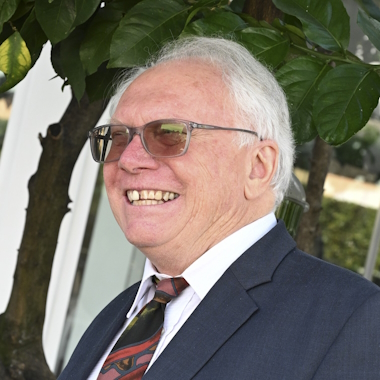Discours de remerciement – Rome 21.11.2024 (anglais)
Australie
John Braithwaite
Prix Balzan 2024 pour justice réparatrice
Pour sa contribution au développement théorique et à la diffusion de la pratique de la justice réparatrice contemporaine, pour son engagement au service des institutions et de la construction sociale, pour son travail de haute diffusion scientifique et éditoriale, pour sa dédication à l’acculturation des jeunes générations aux valeurs de la justice réparatrice.
Mr President,
Ladies and Gentlemen,
Such an honour to receive this Balzan Prize. Restorative justice is now a vast social movement with a global research community. I’m but a small cog in this community. Other cogs move the field in more important ways than me, including some who nominated me, so I am humbled. My little cog would not turn without my beautiful family that keeps me turning and aligned. Hugs of thanks to you all.
At the personal level, restorative justice informs a better way of living. The movement makes the personal political. Healing as a personal need becomes a political demand. Good research on effects of restorative justice occurs at the micro, meso, and macro levels.
Restorative justice is about the idea that because injustice hurts, justice should heal. When my ANU Centre for Restorative Justice led by Heather Strang started randomized controlled trials, many thought they would show restorative justice to be most accepted and effective for minor youth crime. But victims, defendants, and other stakeholders, sitting in the circle discussing how they had been harmed by the crime and what should be done to repair harms, often experienced more transformative change with serious violence. War crime restorative justice reinforces this conclusion.
Our first Australian randomized controlled trials showed the largest initial impacts in reducing crime (40 per cent reduction) was for restorative justice with fairly serious violent crimes by young adults.
Restorative justice now grows in importance for corporate crime, environmental crime, organized crime, and terrorism. Italian leadership in restorative justice innovation and research with terrorism has been profound.
Restorative justice has spread more widely in schools than in criminal law across many countries. It can improve educational outcomes, reduce bullying, and the need for school suspensions. Restorative justice also spread widely in child protection. Indigenous justice frequently fits definitions of restorative justice. Our field is enriched as we learn from insights of ancient Indigenous justice traditions. We should be humbled by their wisdom that we neglected and failed to empower for too long.
I research the idea of restorative diplomacy in times of war. My Balzan Project will explore with younger scholars the ways peacemaking diplomacy is and is not restorative in African wars, Ukraine, and beyond.
Thank you for the Balzan’s generosity in supporting these research ambitions.
